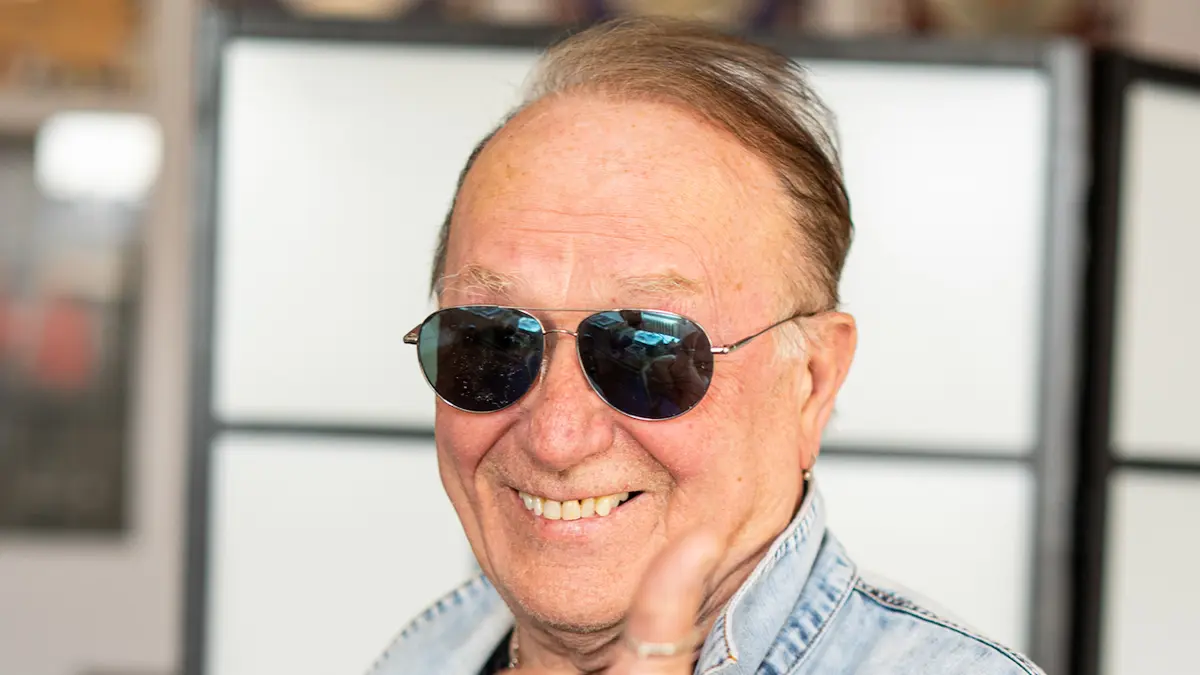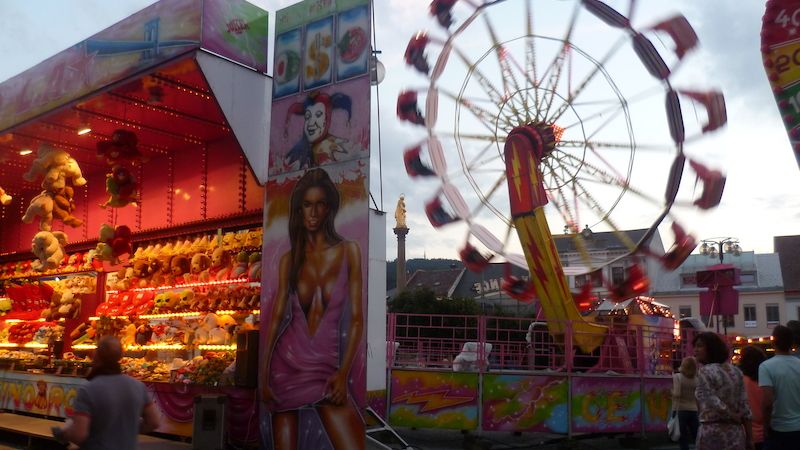Was recording a solo album for your birthday an obvious choice?
It only became clear when the guys from Supraphon called me and asked if I wanted to record a solo album for the eighties. I replied to them that I wanted to because I love writing, writing lyrics and recording. I really enjoyed the process of making the whole album.
Do you find them as important as the previous two solos?
For the first two, I didn’t speculate much about their content. It wasn’t until the third that I thought I should make it completely different from what I’ve shot so far, including the one with Olympik. I knew that I would be recording a genre I had never used before, that it would be a different record.
On his first solo album, Co je dobry a co zły from 1998, there was the pop rock hit Jsem unlinj. It was like a song and, in my opinion, quite successful. Once jó’s second album, Once né from 2008 was not very successful. With the passage of time, I see it as scattered, not having a fixed line. I’m happy with the new record so far, but I admit that I don’t have the necessary distance from it. I’ll be wiser in half a year.
You give Olympika a clear voice with your writer’s handwriting and singing expressions. Is it difficult to realize a record that should be different?
Just by adding another player to the backing band, it got a different sound. Keyboardist Ondřej Fencl, bassist Adam Stivín and drummer Lukáš Pavlík played with me. I am also married to another co-producer, Lukáš Pavlík, who also plays drums in the band Chinaski and is two generations younger than me.
The third step is to invite a number of different guests. And I’m also trying to make songs that aren’t meant for the Olympics.
Photo: Lucie Levá
Peter the Widow
For example, Střepy’s shocking jazz song…
Yes, but I’m not writing here now, but around 1975, when I went to the Jaroslav Ježek Conservatory. That is the task for the counterpoint. I’ve had that song in my head ever since, because I think I did pretty well. Now I finally filmed it.
Something similar happened at Jand’s wedding parade. For years I wanted to have my own wedding march, but I knew it wouldn’t work with the Olympics. The solo record was perfect for the making.
Why is this album called I might not want it?
It’s a picture of my soul, the thing I think about. I have two small children here, and when it comes time to leave, I probably won’t really want to. I wonder how things will turn out. I have a total of four daughters and I try to support them so they won’t lose in the future. Especially two small children.
When I started recording and didn’t have the lyrics for the title track yet, I had already decided that it would be called I probably didn’t want to. And I also knew that would be the title of the song.
What else do you know?
That the record will include the composition of Mladej kmet, which Ondřej Fencl created for me five years ago. There’s an “I’ll find a new sun” twist in it. I’m having fun, so if you look at the album cover, I’m standing under the sun, which shines on me faintly. I’m looking for a new sun. This song was originally written when I was in my seventies. Now I have to edit the text for those five years.
He’s in a duet with your daughter Marta. What is this about?
About a good prostitute who finds her profession to be fun. At night he goes to work and in the morning when he leaves, the sun rises, he flaps his wings and goes to lie down. This is a slightly different look at the world’s oldest craft.
Interestingly, it was one of the first songs I wrote on the Olympiak Kaťata record. But he didn’t graduate in the band because he was too big a dick. So I use it for solo.
Does Marta have a problem with the text?
He didn’t, because he really trusted me as a musician. It was a pleasure for me to work with him. He always prepares well, and he pronounces it the same way I do, so we usually sing those songs first in the studio.
Are you happy with what he is doing in the world of music?
I think he still has something ahead of him. She is an amazing singer and is far from the peak of her career. I went to almost all of his concerts in the Czech Republic. He has a great band, I really enjoyed it.
I also hope he continues to work with his German group Die Happy. He has a great history and I don’t think he has said the last word either. He should record a new album this year, I’m looking forward to it.
Pavel porcl is a guest in the composition of JS Bach. At first it was Bach’s motive…
It was from his Concerto in D minor for two violins and orchestra, which have accompanied me all my life. I’ve played it with my dad and my violin teacher. I’ve watched it many times, everyone plays it a little differently. Every violinist knows him. I took the motif, added my melody and invited Pavel porcl, who played absolutely amazing stuff in the composition.
Photo: Lucie Levá
Peter the Widow
The song I like like this is sung by the Dobrý večer quintet. What brought you together with him?
I saw him on TV a few times and as I wrote this song I realized how well he fits into the chorus. I contacted Edward Tomas, the manager, and asked if they would come to my studio to sing.
At the same time, I told him that God would pay for it. You know, I didn’t have the budget for that album. Everyone who is a guest in it does so for free. At the same time, we all believe that something will sell and we will get something to record. It’s sad, but that’s the truth.
The Goodnight quintet arrived and Ondřej Ruml, who sang bass in it, came with him. And they sing it beautifully.
Lukáš Koranda wrote some of the lyrics for the album, he also sang some of the vocals. How did he get into the creative team?
Lukáš is a zoo expert, he works in the cowshed. He sings, writes lyrics and gets lucky. Once he wrote to me asking if I wanted some of his lyrics for the new Olympic album. I gave him a song prepared for the recording of Kaťata, and he wrote a great caption for it, Pálím vů. So I wrote to him that I would like to work with him in the future.
It was recorded in your studio Prepast. Is it fun with so many guests?
Yes, it’s a lot of fun. Some people come and listen to those who are recording towards, and then they go to record, and those who have just finished recording go to listen to them towards. There is a great creative atmosphere, several musicians chat with each other during work. It was sensational.
You know, I believe that this record is one that, when I play it in a few years, I’ll smile. When I hear good music, I smile. I frown when I hear stupid music. Just this morning I listened to AC/DC’s Highway To Hell in the car and smiled.
You may find it useful on Zboží.cz:

“Unapologetic social media guru. General reader. Incurable pop culture specialist.”







